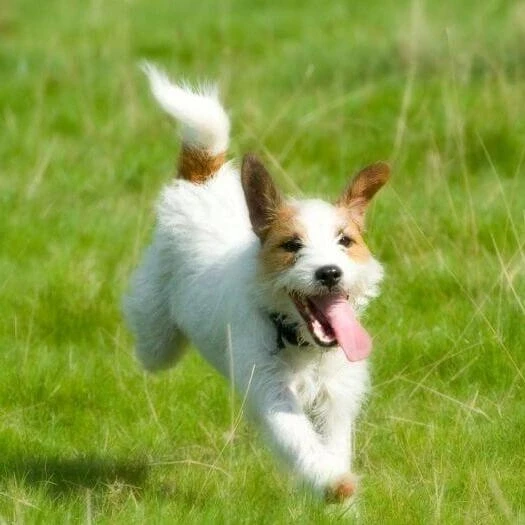The Parson Russell Terrier is a small, energetic hunting dog, originally bred in England in the 19th century for fox hunting. This breed descends from early working terriers, resulting in an intelligent, fearless, and highly active companion.
- Origin: England, developed for hunting and vermin control.
- Smart and trainable: Quick learner but can be independent.
- Loyal and affectionate: Forms deep bonds with its family.
- Energetic and playful: Requires daily exercise and mental stimulation.
- Short, smooth or rough coat: Low maintenance but sheds moderately.
The Parson Russell Terrier is a lively and determined companion, excelling in agility, obedience, and hunting. With proper training and early socialization, they become well-mannered, affectionate pets suited for active families and experienced owners.


 Breed Size
Breed Size
 Coat
Coat
 Care
Care
 Breed Traits
Breed Traits
 Breeds Club Recognition
Breeds Club Recognition